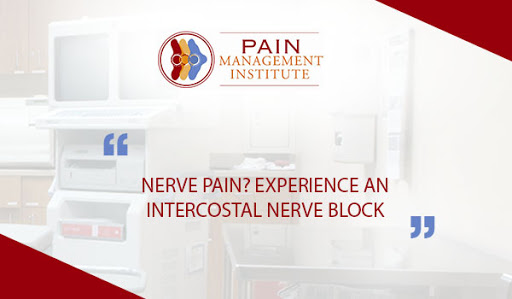An intercostal nerve block is a unique method to combat pain, persistent pain syndromes, either acute or chronic in the area of the chest. The procedure was first introduced by Heinrich Braun. Intercostal nerves lie below the lower margins of the ribs. Intercostal nerve blocks involves the injection of a local anesthetic, with or without a steroid in the area near to intercostal nerves. The procedure is a component of an integral method for the treatment and management of pain. Intercostal nerve blocks are sometimes the only prescribed treatment and blended with other treatments such as anti inflammatory medicines, chiropractic care, oral or intravenous Opioids, occupational therapy and antidepressants
Intercostal nerve blocks are often for treatment purpose, but it can be also used for diagnosis in some conditions. If pain is not reduced with injections an intercostal nerve might not be the root cause of the pain
If the pain is acute, an intercostal nerve may be the cause, with insufficient pain, recovery performed by the Co injected steroid. If the pain is alleviated for longer periods such as hours, days and weeks an intercostal nerve is the root cause. If this is the situation repeat injections of the local anesthesia with or without a steroid
When should I avoid an intercostal nerve block?
Intercostal nerve blocks should not be taken by patients having any of the following symptoms
- Allergy to any local anesthetic
- Infections breakout whether bacterial or viral
- Influenza A or B
- Poorly controlled hypertension
- Treatment with blood thinners
- Poorly controlled diabetes
If you are taking any blood thinners, it is advised to stop taking the blood thinners at least a week before the procedure
Risks and complications
An intercostal nerve block is a safe procedure, however, there are possibility of complications, which may include;
- Bruising or soreness at injection site
- Infection
- Nerve damage
- Collapsed lung
- Bleeding
- Systemic toxic reactions
- Death (very rare)
- Increased blood sugar levels
What conditions are treated with the intercostal nerve blocks?
There are several conditions that are treated from an intercostal nerve block which includes;
- Post-traumatic pain from rib fracture, shingles (herpes zoster), or post herpetic neuralgia
- Postoperative pain from chest wall surgeries or procedures
- Chronic non-malignant pain
- Pain from malignancies involving the chest wall
The above discussed conditions compresses the intercostal nerves and causes inflammation, which leads to pain in the chest wall

